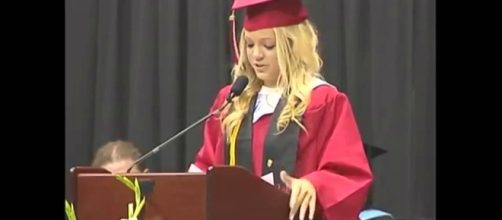A growing number of American schools have dropped the tradition of naming the graduating student with the highest grade average, the valedictorian. Instead, more institutions of learning are using Latin honors to recognize academic performance and make students understand they are more than a score or rank.
The shift has resulted in one Tennessee school having one-fourth of the graduating class recognized as all valedictorians instead of one student with the highest grade average, The New York Post reported. At present, about 50 percent of schools in the U.S.
do not report class rank anymore, the National Association of Secondary School Principals said.
Class rank could affect college prospects
One reason why school administrators ditched the class ranking is its impact on college prospects of graduating high school students. In some schools, the students could be separated by big differences in class rank even if their GPAs have small differences. Class rank has become obsolete in an era of high expectations for all students, Bob Farrace, the spokesman of the association, said.
Rankings, nevertheless, still have an important role in the college admission process. Some scholarships are based on student ranking. College rankings, meanwhile, take into account the number of top students enrolled at the college.
Colleges, however, have adjusted to the reality that a growing number of applications do not have class ranks. If the rank is available, some colleges ask for it. The individual grades of the applicant and the rigor of the course the student picked, however, weigh more heavily, according to Melanie Gottlieb, the deputy director of the American Association of Collegiate Registrars and Admissions Officers.
What happened to the class valedictorian?
A new book by Eric Barker, “Barking Up the Wrong Tree,” stated that while many valedictorians do well in life, they do not become billionaires or world-changers. He based that premise on a study by Karen Arnold, author of “Lives of Promise: What Becomes of High School Valedictorians” and a professor at Boston College, CNBC reported.
Arnold tracked 81 high school valedictorians and salutatorians after they graduated. She explained that traits, such as self-discipline, conscientiousness, and the ability to follow the rules, to achieve exceptional success in high school and college differ from what make people make shocking breakthroughs or begin disruptive companies. Many valedictorians often settle into the system rather than shake it up, Arnold said.
Even many of the valedictorians believe they were not the smartest in their batch, but they were the hardest workers. Some know what their teachers want without absorbing their subjects. Outside the scholastic world, many workers who were mediocre students thrive in their professional careers. One proof of it is that a survey found that the average college GPA of more than 700 American millionaires was 2.9.


